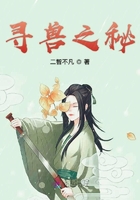It was neither the season nor the hour when the Parkhad frequenters; and it is likely that the young lady, whowas seated on one of the benches at the side of the walk,had merely obeyed a sudden impulse to sit for a while andenjoy a foretaste of coming Spring.
She rested there, pensive and still. A certain melancholythat touched her countenance must have been of recentbirth, for it had not yet altered the fine and youthful contoursof her cheek, nor subdued the arch though resolute curve ofher lips.
A tall young man came striding through the park alongthe path near which she sat. Behind him tagged a boycarrying a suit-case. At sight of the young lady, the man’sface changed to red and back to pale again. He watchedher countenance as he drew nearer, with hope and anxietymingled on his own. He passed within a few yards of her,but he saw no evidence that she was aware of his presenceor existence.
Some fifty yards further on he suddenly stopped and saton a bench at one side. The boy dropped the suit-case andstared at him with wondering, shrewd eyes. The youngman took out his handkerchief and wiped his brow. It wasa good handkerchief, a good brow, and the young man wasgood to look at. He said to the boy:
“I want you to take a message to that young lady onthat bench. Tell her I am on my way to the station, toleave for San Francisco, where I shall join that Alaskamoose-hunting expedition. Tell her that, since she hascommanded me neither to speak nor to write to her, Itake this means of making one last appeal to her senseof justice, for the sake of what has been. Tell her that tocondemn and discard one who has not deserved suchtreatment, without giving him her reasons or a chance toexplain is contrary to her nature as I believe it to be. Tellher that I have thus, to a certain degree, disobeyed herinjunctions, in the hope that she may yet be inclined tosee justice done. Go, and tell her that.”
The young man dropped a half-dollar into the boy’shand. The boy looked at him for a moment with bright,canny eyes out of a dirty, intelligent face, and then setoff at a run. He approached the lady on the bench a littledoubtfully, but unembarrassed. He touched the brim ofthe old plaid bicycle cap perched on the back of his head.
The lady looked at him coolly, without prejudice or favour.
“Lady,” he said, “dat gent on de oder bench sent yer asong and dance by me. If yer don’t know de guy, and he’stryin’ to do de Johnny act, say de word, and I’ll call a copin t’ree minutes. If yer does know him, and he’s on desquare, w’y I’ll spiel yer de bunch of hot air he sent yer.”
The young lady betrayed a faint interest.
“A song and dance!” she said, in a deliberate sweet voicethat seemed to clothe her words in a diaphanous garmentof impalpable irony. “A new idea—in the troubadour line,I suppose. I—used to know the gentleman who sent you,so I think it will hardly be necessary to call the police.
You may execute your song and dance, but do not sing tooloudly. It is a little early yet for open-air vaudeville, and wemight attract attention.”
“Awe,” said the boy, with a shrug down the length of him,“yer know what I mean, lady. ’Tain’t a turn, it’s wind. Hetold me to tell yer he’s got his collars and cuffs in dat gripfor a scoot clean out to ’Frisco. Den he’s goin’ to shootsnow-birds in de Klondike. He says yer told him not tosend ’round no more pink notes nor come hangin’ over degarden gate, and he takes dis means of puttin’ yer wise. Hesays yer refereed him out like a has-been, and never givehim no chance to kick at de decision. He says yer swipedhim, and never said why.”















